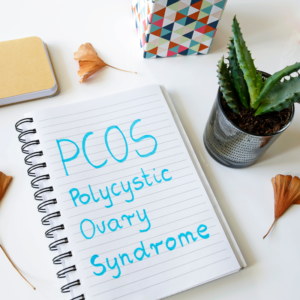Recent studies indicate that seasonal allergies could be linked to heightened levels of anxiety.
Seasonal Allergies And Anxiety
Researchers at the University Hospital Augsburg in Germany have discovered a link between seasonal allergies and anxiety. The study examined over 1,700 people and found that individuals with generalized anxiety disorders had a higher likelihood of pollen allergies, while depression was more common in people with year-round allergies. The research suggests that different types of allergies might be associated with different psychological conditions.
The study found that stress and anxiety can make allergies worse, and therefore people with allergies should have a comprehensive management plan that includes stress management techniques and counseling. An allergist may not be trained to manage the psychological impact allergies can have, so it’s important to talk to a healthcare professional if you are struggling to manage your allergy symptoms.
It is important to note that research like this doesn’t necessarily establish causality, but it does highlight the need for people with allergies to seek help from healthcare professionals for effective management plans that can improve their quality of life. More research is needed to determine if there is a causal relationship between seasonal allergies and anxiety.
Understanding Allergies
An allergist may not be trained to manage the psychological impact allergies can have, according to Dr. Maria Garcia-Lloret, a pediatric allergy and immunology specialist at UCLA Health. Stress is an exacerbating factor in almost any chronic disease and is likely under recognized or undertreated.
More than 50 million Americans experience allergies each year, and allergies are the sixth-leading cause of chronic illness, costing $18 billion annually. Allergies account for 2 million lost school days, 6 million lost workdays, and 28 million restricted workdays each year nationwide. The stress over the impact allergies can have on people’s fiscal and social well-being could certainly tie into anxiety of some kind.
To understand people’s allergy management approaches, Katharina Harter, MPH, the lead author of the study, says that the research team would like to spend time with individuals. Garcia-Lloret says that people with allergies tend to learn the art of perseverance, devising ways to cope with day-to-day disruptions. Garcia-Lloret emphasizes that emotional status affects not only the perception of diseases but also the course of a disease.
People who experience anxiety due to allergy symptoms should talk to their doctor and/or a mental health specialist about their symptoms and treatment options, says Dr. Mark Aronica, an allergist-immunologist at the Cleveland Clinic. He recommends that people with allergies have a comprehensive management plan that includes stress management techniques and possibly counseling to help reduce the anxiety that people with allergies experience.
Dr. Garcia-Lloret advises that people with allergies should not ignore their symptoms, especially if they feel anxious or stressed. She says that it is important to talk to a healthcare professional if they are struggling to manage their allergy symptoms.
Final Thoughts on Seasonal Allergies and Anxiety
While the recent study conducted in Germany suggests an association between seasonal allergies and anxiety, more research is needed to determine if there is a causal relationship between the two. However, it is important for people with allergies to seek help from healthcare professionals for a comprehensive management plan that includes stress management techniques and counseling. This will help reduce the anxiety that people with allergies experience and improve their quality of life. Finding healthy ways to cope with allergies and working closely with a doctor to determine the best treatment and management plan for symptoms can be beneficial.







